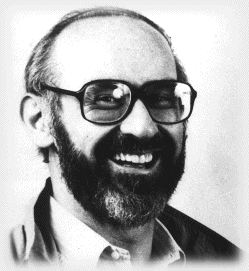November marks the 25th anniversary of liberation psychologist Ignacio Martin-Baró’s assassination in El Salvador by a counter-insurgency unit created at the US Army’s School of the Americas in 1980. On November 16, 1989, Martin-Baró was murdered by the Salvadoran government’s elite Atlacatl Battalion. The massacre is detailed in the Report of the UN Truth Commission on El Salvador.
 For us, at the Critical Therapy Center, Martin-Baró is a mentor, as he has deeply influenced our practice and understanding of psychology in general, and therapy in particular. Martin-Baró is better known as a liberation psychologist. Liberation psychology is an intellectual and political movement that began in Latin America in the 1960s. It is concerned with rethinking and repositioning certain disciplines, like psychology, from the perspective of the marginalized, the poor, and the oppressed. Its main goal is to engage the oppressed and to stand in solidarity with them. The central theme of liberation psychology is the focus on the collective experience and analyzing how power structures shape particular events of our individual and unique lives.
For us, at the Critical Therapy Center, Martin-Baró is a mentor, as he has deeply influenced our practice and understanding of psychology in general, and therapy in particular. Martin-Baró is better known as a liberation psychologist. Liberation psychology is an intellectual and political movement that began in Latin America in the 1960s. It is concerned with rethinking and repositioning certain disciplines, like psychology, from the perspective of the marginalized, the poor, and the oppressed. Its main goal is to engage the oppressed and to stand in solidarity with them. The central theme of liberation psychology is the focus on the collective experience and analyzing how power structures shape particular events of our individual and unique lives.
Psychologist Martin-Baró believed that the role of a psychologist is not to explain the world, but to change it for the better. He challenged psychologists and mental health professionals to engage with the sociopolitical challenges and movements around them, rather than understanding them from the perspective of scientific spectators. He believed in de-ideologizing everyday experiences, and as a social psychologist he did this by advocating for participatory research.
For us, at the Critical Therapy Center, we’ve understood this to mean that the position of a therapist cannot be one of neutrality. The critical therapist enters the clinical hour with a preferential option for the oppressed and the marginalized and is always mindful of the ways power is refracted (for example) through race, class, gender and religion, and questions how it interacts with the therapeutic process. S/he receives and explores the patient’s experience, particularly the avoided and dissociated aspects, by returning it to the patient as data and dialoguing about it.
In memory of Ignacio Martin-Baró and his work we’ve compiled a list of resources for you:
English Speaking Resources
Why an Assassinated Psychologist – Ignored by US Psychologists – Is Being Honored by Bruce E. Levine – Truthout
The Life of Ignacio Martin-Baró by Nelson Portillo
Spanish Speaking Resources
Teoría y Crítica de la Psicología
